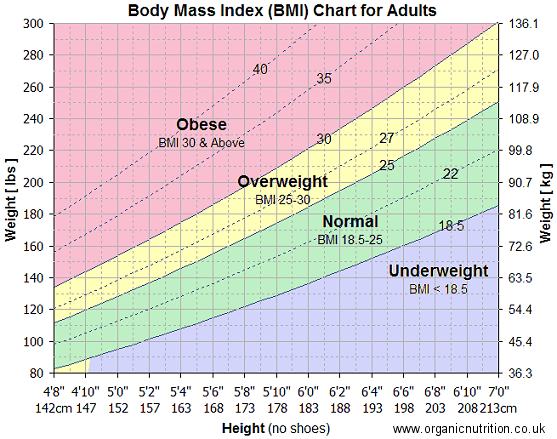Diet &Your Weight
In discussing weight it is important to understand the
definitions of healthy weight. Being
underweight means that there is not enough nutrition to sustain the body, the
person is under a healthy weight and has a "BMI below 18.5" (Sizer
& Whitney, 2013). Being overweight
means that a person consumes more than is needed and has excesses in body fat
with a "BMI between 25 to 29.9" (Sizer & Whitney, 2013). Obese means that there is too much fat on the
body that can cause the body ill health.
This would be a "BMI over 30" (Sizer & Whitney, 2013).

Determine your BMI here.
Being underweight can cause many problems. In a situation where their body is fighting to survive they will not last because they have nothing to sustain their body. If they end up in
the hospital with a disease they can starve to death due to lack of nutrients. Being underweight means they have no reserve
of energy in their body to store the nutrients they need.
Being overweight causes many problems as
well. Many chronic diseases are
associated with being overweight.
According to the National Institutes of Health, Coronary Heart Disease,
angina, heart attack, high blood pressure, stroke, and diabetes are all side
effects of being overweight (National Institutes of Health, 2012). Along with these big diseases there is also
the risk of arthritis, gout, gallbladder disease, skin problems, respiratory
problems, and sleeping problems (Sizer & Whitney, 2013).
Being obese not only shares these same risks
but it increases the possibility of death from these diseases.
When not enough food is consumed to restore energy reserves
the body cannot function properly.
However, when the body consumes more food than needed to replenish that
energy it is stored as fat in the body.
In order to maintain a healthy body weight it is important
to eat a healthy diet with the appropriate calorie intake for energy
consumption, watch portion sizes, remain physically active enough that will burn fat
and build muscle. It is also important
to understand that just because a person is larger than someone else that does
not mean they are unhealthy. Everyone's
bodies are different. Being healthy and
active can make a world of difference.
References:
National Institutes on Health. (July 13, 2012). What are the Health Risks of Overweight and
Obesity?, Retrieved from http://www.nhlbi.nih.gov/health/health-topics/topics/obe/risks
National Institutes on Health. (n.d.) Calculate your body mass index. Retrieved from http://www.nhlbi.nih.gov/health/educational/lose_wt/BMI/bmicalc.htm
Organic Nutrition. (n.d.). What is BMI (Body Mass Index)?. Retrieved from http://www.organicnutrition.co.uk/articles/the-body-mass-index.htm
Sizer, F. & Whitney, E. (2013). Nutrition:
Concepts and Controversies (13th ed.). Mason, OH: Cengage Learning
Weight Loss. (n.d.). Weight Loss Diets. Retrieved from http://www.weightloss.audio/wp-content/uploads/2014/10/top-healthy-dietsbest-diet-for-weight-loss-helps-you-stay-fit-my-health-4etult5g.jpg
No comments:
Post a Comment